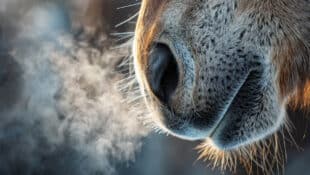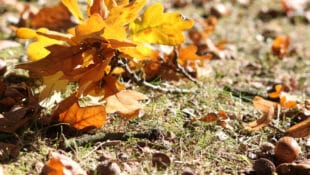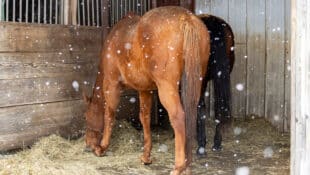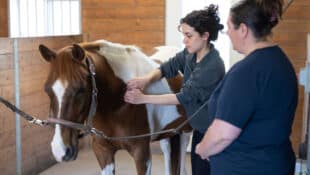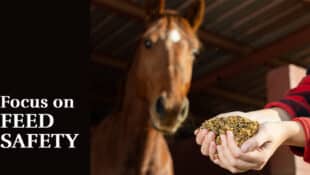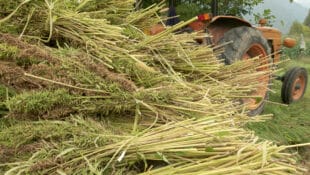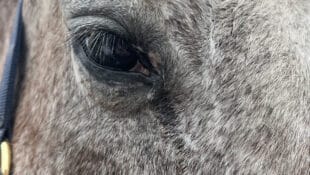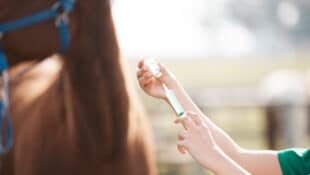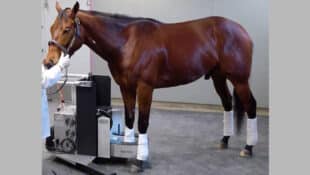As winter approaches and many horses will be spending more time indoors, learn to recognize the often subtle signs of this condition's onset.
A study found that adding water to feed does not boost overall water intake, and a reminder of the dangers of horses eating acorns.
As winter approaches, turnout time and exercise decreases for many horses, which increases the incidence of this type of colic.
Tracey Mitchell took a leap of faith when she started the Mitchell School of Equine Massage Therapy at the beginning of 2025.
How to avoid dangerous contamination in your horse's feed, and understand toxin binders, monensin, and mycotoxins.
Dr. Sue Dyson provides a recap of a Spanish study that looked at orthopaedic and injury assessments of 70 dressage horses.
From bedding to oil and even forage, this versatile plant has many uses – although it can be problematic for competition horses.
Aging equines can suffer a range of eye issues, from cataracts to uveitis, which can impact their comfort, confidence, and safety.
What you can do to prevent increasing antibiotic resistance in your horses – and the transmission of resistant bacteria to people.
While traditional imaging methods are constantly improving, there are also exciting new diagnostic devices and treatment options on the horizon.
